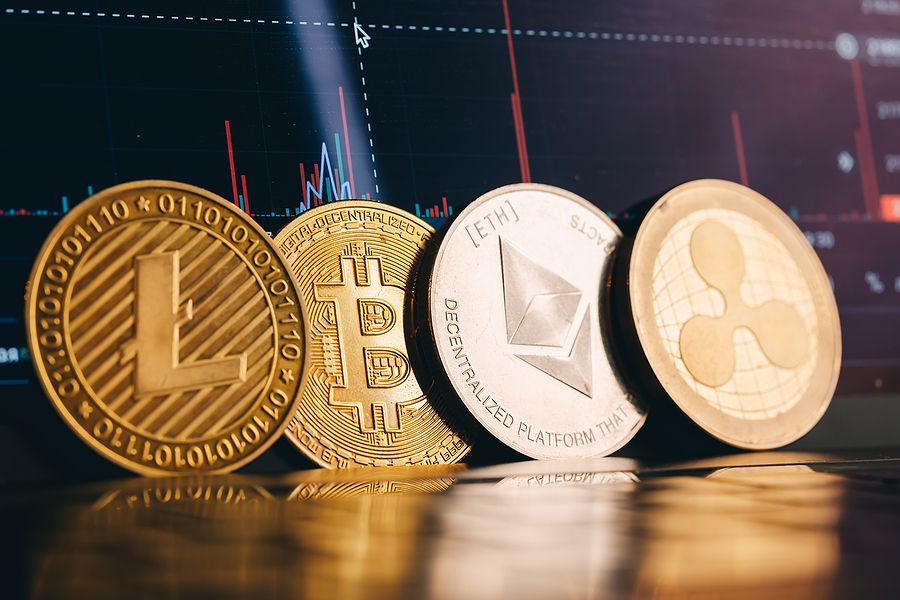- Are all cryptocurrencies the same
- Do all cryptocurrencies use blockchain
- All casinos accepting cryptocurrencies
Cryptocurrencies all
Solutions to this issue have been in development for years. There are currently blockchain projects that claim tens of thousands of TPS. Ethereum is rolling out a series of upgrades that include data sampling, binary large objects (BLOBs), and rollups https://greenleafsupplements.com/. These improvements are expected to increase network participation, reduce congestion, decrease fees, and increase transaction speeds.
Disclaimer: Our articles are NOT financial advice, we are not financial advisors. All investments are your own decisions. Please conduct your own research and seek advice from a licensed financial advisor.
Blockchain is a decentralized digital ledger that securely stores records across a network of computers in a way that is transparent, immutable, and resistant to tampering. Each “block” contains data, and blocks are linked in a chronological “chain.”
No, tax rules depend on your location and how the cryptocurrency is used. Selling a payment coin, earning rewards from governance tokens, or holding stablecoins can have different implications. Tools like KoinX help you categorise and calculate tax obligations accurately based on your transaction history and jurisdiction. For more details, you can read our tax guides here.
Are all cryptocurrencies the same
The fiat-crypto rates are changing and we can’t expect that they will stay the same all the time, because the crypto market has a different dynamic than the global financial system. For example, Bitcoin is now going close to $13,000 per one coin, but one Litecoin is equal to $56, and one Ether is $412. There is some crypto money that is related to the traditional currencies too. This is another one thing that shows us how different are these currencies, but also, that we can’t expect the situation will be the same forever. Maybe one day some of the smaller currencies will have a chance to be huge as the Bitcoins.
However, the differences between them suggest that cryptocurrencies offer more control to users and benefits of security for their assets. On the contrary, digital currencies such as CBDCs provide the assurance of legal validity alongside the backing of governments and central banks. Discover more information about digital currencies and cryptocurrencies to understand their differences with better clarity.
Most people are not aware that there is a difference between digital, virtual, and cryptocurrencies, but they are strongly related, and it’s not a huge mistake when we mix them up. But, here we are to explain it. Digital currencies are the main group that contains all the electronic money, including the virtual and crypto ones. Virtual money is strictly digital, they aren’t controlled by any bank, and they exist in some virtual spaces, and can be used there. Sometimes, they can be exchanged for traditional money, depending on the purpose and the background. But, what makes the cryptocurrencies different? They are both digital and virtual, but they are backed up by cryptography. In order to access them, you need to either invest in the blockchain system and solve advanced cryptography tasks or join some trading community, and buy or exchange them from the people who already mined their money, and they are ready to sell them for cash. Interested?
The fiat-crypto rates are changing and we can’t expect that they will stay the same all the time, because the crypto market has a different dynamic than the global financial system. For example, Bitcoin is now going close to $13,000 per one coin, but one Litecoin is equal to $56, and one Ether is $412. There is some crypto money that is related to the traditional currencies too. This is another one thing that shows us how different are these currencies, but also, that we can’t expect the situation will be the same forever. Maybe one day some of the smaller currencies will have a chance to be huge as the Bitcoins.
However, the differences between them suggest that cryptocurrencies offer more control to users and benefits of security for their assets. On the contrary, digital currencies such as CBDCs provide the assurance of legal validity alongside the backing of governments and central banks. Discover more information about digital currencies and cryptocurrencies to understand their differences with better clarity.
Most people are not aware that there is a difference between digital, virtual, and cryptocurrencies, but they are strongly related, and it’s not a huge mistake when we mix them up. But, here we are to explain it. Digital currencies are the main group that contains all the electronic money, including the virtual and crypto ones. Virtual money is strictly digital, they aren’t controlled by any bank, and they exist in some virtual spaces, and can be used there. Sometimes, they can be exchanged for traditional money, depending on the purpose and the background. But, what makes the cryptocurrencies different? They are both digital and virtual, but they are backed up by cryptography. In order to access them, you need to either invest in the blockchain system and solve advanced cryptography tasks or join some trading community, and buy or exchange them from the people who already mined their money, and they are ready to sell them for cash. Interested?
Do all cryptocurrencies use blockchain
Having all the nodes working to verify transactions takes significantly more electricity than a single database or spreadsheet. Not only does this make blockchain-based transactions more expensive, but it also creates a large carbon burden on the environment.
In Bitcoin, your transaction is sent to a memory pool, where it is stored and queued until a miner picks it up. Once it is entered into a block and the block fills up with transactions, it is closed, and the mining begins.
Simply put, a blockchain is a shared database or ledger. Bits of data are stored in files known as blocks, and each network node has a replica of the entire database. Security is ensured since the majority of nodes will not accept a change if someone tries to edit or delete an entry in one copy of the ledger.
All casinos accepting cryptocurrencies
Tether is a stablecoin pegged to the US dollar, offering players the benefits of crypto transactions without the volatility. It’s ideal for users who want to gamble with predictable values and avoid the price fluctuations associated with most other cryptocurrencies.
Avalanche is a decentralized, open-source blockchain platform designed for scalable and secure applications. It aims to provide high-speed transactions, low fees, and environmentally friendly consensus mechanisms. Avalanche’s consensus protocol supports interoperability between different blockchains, allowing for efficient decentralized finance (DeFi) solutions, making it a rapidly growing player in the crypto space.
While the European Union is a pioneer in recognizing cryptocurrencies, it currently lacks comprehensive regulation for crypto-related activities. Countries worldwide vary in their stance on cryptocurrencies, BTC casinos and online gambling.
Special promo codes, an attractive welcome bonus, support for Inclave login, and 75 free spins that are awarded just for opening an account are just some of the highlights when talking about 7Bit’s promotional offering, the casino’s biggest strength. While we would wish that the wagering requirements to unlock the bonus would be lower, they are not as high as to actually hinder bonus progress in any meaningful way.
FortuneJack Casino is a reputable and trusted online casino that offers a wide range of games, generous bonuses and promotions, and secure payment options. It is a great choice for players looking for a reliable and enjoyable online gambling experience that combines sports betting and regular casino gaming. Moreover, the bonuses and promotions are great, which only further cements its place among the best Bitcoin casinos.




